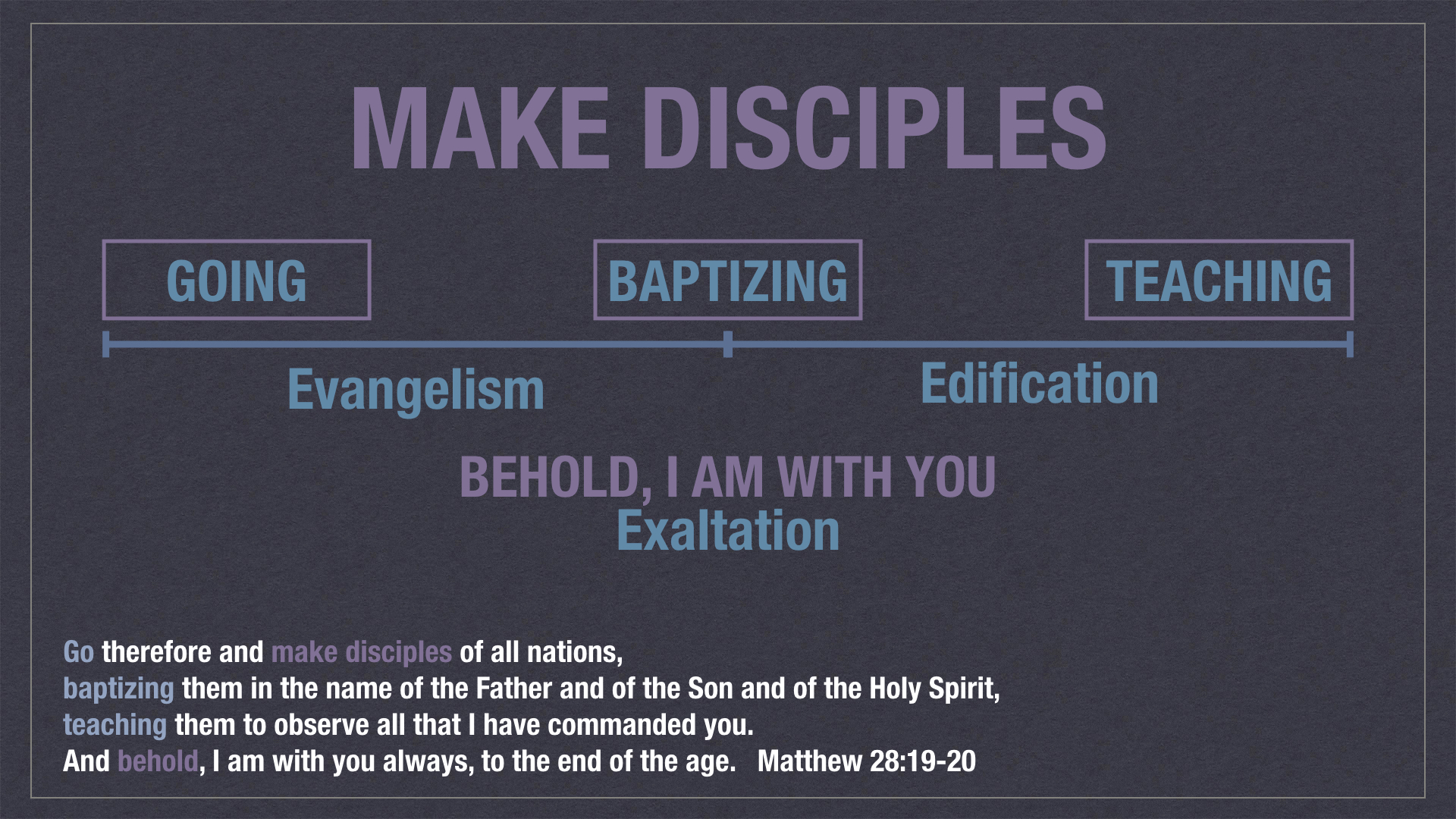Should we stop saying "evangelism and discipleship" as if they were two different things?
/“Make Disciples” Equals Evangelism Plus Edification For the Purpose of Exaltation
For years I was like most modern North American Christians. I saw evangelism as the process of sharing the good news with those who do not have a personal relationship with Jesus the Messiah. Discipleship is viewed as the process of helping those who have a relationship with Jesus grow and mature in that relationship. Evangelism is for the lost. Discipleship is for the found. One of the most famous books in recent history, “The Purpose Driven Life,” by Rick Warren shares this view and rightly elevates these two process as the purpose of our life. However this dichotomy actually can miscommunicate and confuse our mission in the following ways:
It miscommunicates that “discipleship” is something you only do with believers and not the lost. Making disciples includes all the steps from going to baptizing to teaching. It is more of the method of sharing and training that can happen with both believers and unbelievers.
It misleads believers to think they are only responsible for the part of the Great Commission that they are good at. Some feel they are passionate about sharing the good news and other feel like they are good with teaching and that they are only expected to do what they are good at.
Often discipleship is seen more of something that happens in a Bible Study and misses that importance of life on life relationships that are intentional in helping people both know Jesus and grow in their faith. You can have a life on life relationship that is sharing the good news and stories of Jesus with unbelievers. You can also have life on life relationships that are sharing the deeper truths of the gospel and the stories of the Bible with believers in an intentional way. Both are a part of disciple-making!
Dan Spader shares in his book, “Four Chair Discipling,” that separating “evangelism and discipleship” into two separate categories is a fairly recent development. In an interview, Dan Spader says, “In his book With Christ in the School of Disciple Building, Carl Wilson makes the point that in 1850, a man by the name of Charles Adams was the first to separate evangelism from disciple-making.” The result is often individuals and churches tend to focus on one or the other. Dan Spader recommends using the word “disciple-making” to help people see the bigger picture of what Jesus is expecting his followers to do: “the whole process of winning people to Christ (evangelism), growing them up in Christ (discipleship), and then sending them out to repeat the process.”
The command of making disciples clearly involves the process of going, baptizing, and teaching. The process in between going and baptizing is “evangelism.” The process between baptizing and teaching to obey is “edification.” An edifice is a building and edification is building up. Helping lost people learn who God is and why he sent Jesus and how we can know him is the evangelism part of disciple-making. Helping new followers of Christ become obedient to all of his commands is the edification part of disciple-making. We do all of this for the purpose of exaltation, bringing glory to God. John Piper says, “Missions exists because worship doesn’t.” “Making disciples” equals evangelism plus edification for the purpose of greater exaltation. God has made us his chosen people so that “we may declare the praise of him who has called us out of the darkness into his wonderful light.” (1 Peter 2:9). In other words, to make followers of Christ it requires both sharing the good news with the lost and building up believers to obey his teachings.
Perhaps we should stop saying "Evangelism and Discipleship” as if they were two separate things. More importantly, may we embrace our call to be ambassadors who represent God’s kingdom in a lost world and may we embrace our call as member of the body of Christ and do our part to to build up that body.









